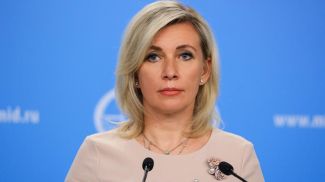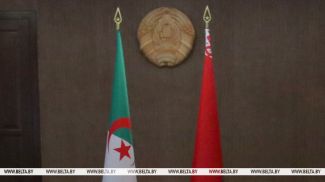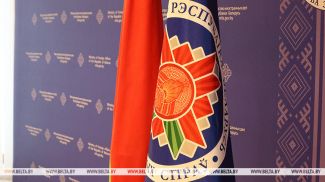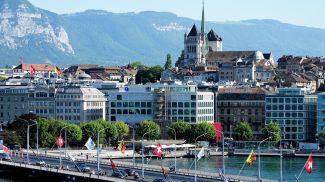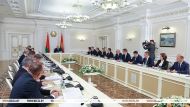
Screenshot of an ONT video
MINSK, 12 July (BelTA) – During the turbulent period in the early 1990s, political parties in Belarus did not submit a single proposal to the government, Sergei Ling, who served as Deputy Prime Minister in 1991-1994 and head of government in 1996-2000, recalled in the ONT documentary “One for All” dedicated to the 30th anniversary of the institution of the presidency in Belarus, BelTA has learned.
The authors and personalities featured in the ONT documentary recalled the difficult situation the country found itself in during the collapse of the Soviet Union and in the first years after the country gained independence. Belarus was plagued by food shortages, inflation, unemployment, rampant crime. “Of course, the main question was what the authorities were going to do to address it, first of all, the Supreme Council, as it was the highest body in the post-Soviet Belarus,” the documentary noted.
Sergei Ling recalled that in an effort to find a way out of the crisis the government wanted to consult with political parties: “I turned to political parties, to everyone - communists, nationalists. I said: “We are working on a crisis response program, submit your proposals. If you want to preserve collective farms, say it. If you want the country to follow in the footsteps of the West, let us know.” Not a single party submitted a proposal to the government. They were bogged down in endless tussles and feuds.”
Sergei Gaidukevich, who was the leader of the Liberal Democratic Party in 1995-2019 and ran for president several times, believes that back then many people went into politics only for the sake of office: “They joined this or that political movement in order to get something out of it. The idea of serving people would make them laugh.”
In general, the parliament was on the boil, many gave beautiful speeches, recalled Vladimir Konoplev, who was an assistant to Aleksandr Lukashenko during his parliamentary years and after his election as president: “Some pulled the parliament to the left, others to the right. The third bloc led by Poznyak consisted of ardent nationalists, they had their own agenda.”





